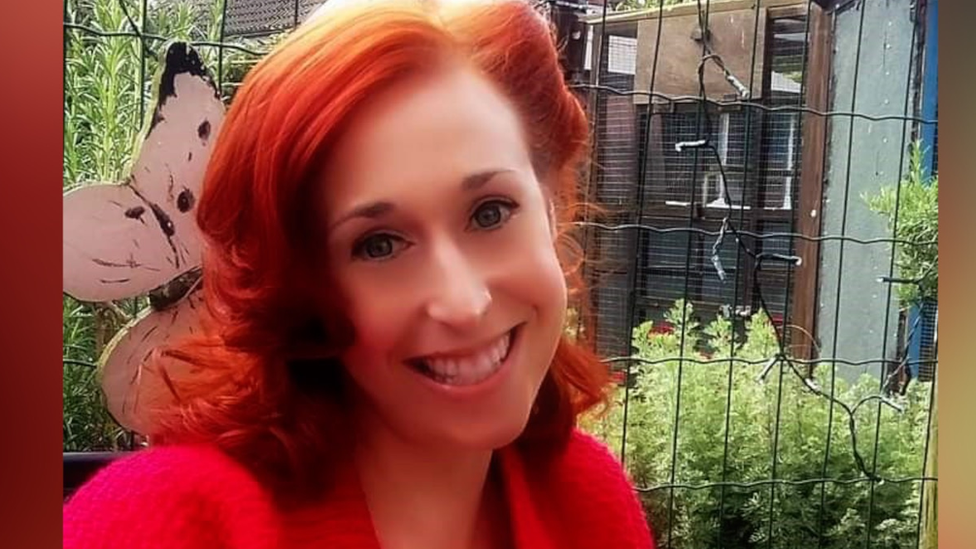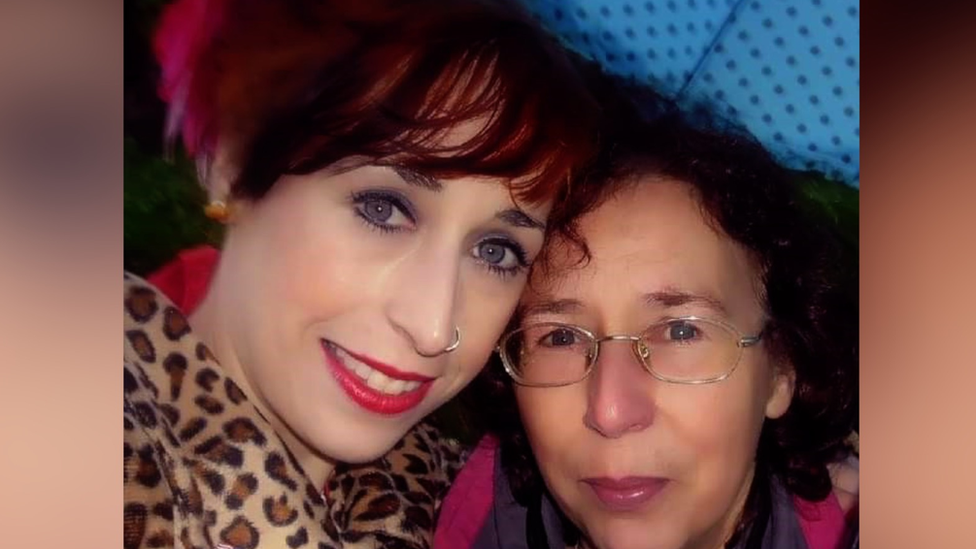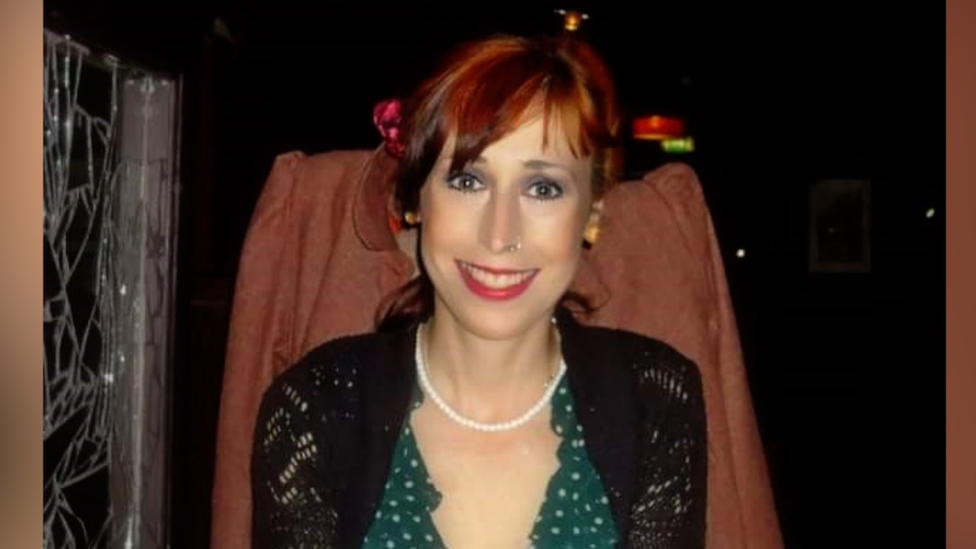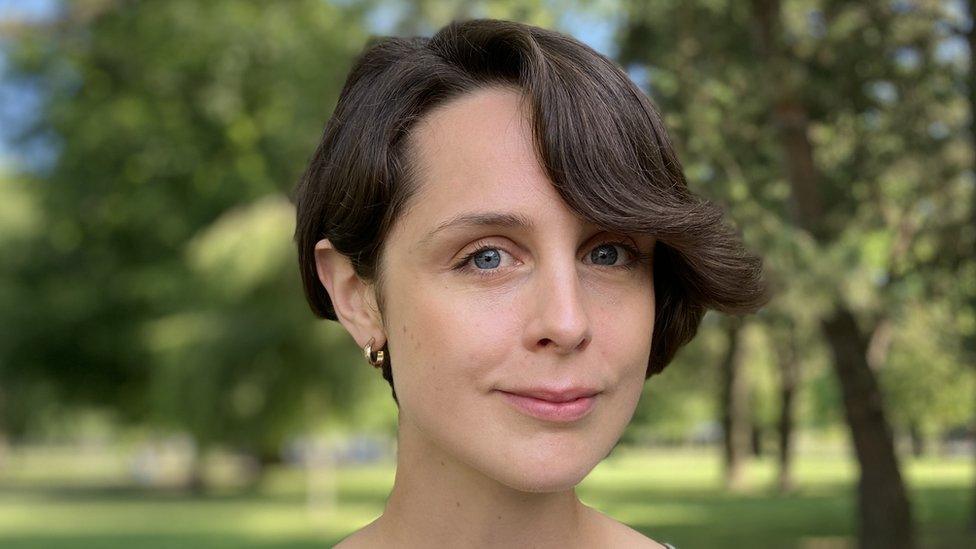Anorexia: 'My friend died due to lack of specialist treatment'
- Published

Amy died while trying to raise £200,000 for treatment
A woman who died from anorexia declined rapidly because of a lack of specialist care, her friend has said.
Amy Ellis died last month, aged 43, after trying to raise £200,000 to fund specialist treatment she was told was not available on the NHS.
"Due to the lack of proper help, her cruel disease took hold and her health declined," Simon Quick said.
The Welsh government said it was increasing investment in eating disorders services.
Ms Ellis said last summer she believed she would die without the treatment only available privately in England.
She was being cared for by her mum at their home in Broughton, Flintshire, and needed mobility aids to get around.
She documented the daily challenges of her condition on social media and told BBC Wales the NHS "could offer no help, because there is no help".
Betsi Cadwaladr University Health Board, which provides services in north Wales, said its specialist adult eating disorder service provided highly specialist interventions and treatment for moderate to severe eating disorders.
There is no specialist residential eating disorder unit in Wales.
Amy Ellis was trying to raise money for anorexia treatment not available on the NHS in Wales
The care she believed would help her offered a combination of treatments in cognitive and behavioural therapy as well as dietic and body image support.
In a tribute, her friend and supporter Simon Quick said she was a "kind and intelligent" person, and that she had "fought against everything to help herself and help other sufferers of eating disorders".
"Having suffered with anorexia all her life, Amy was doing so well despite her battles," he said.
He said her health declined and her suffering increased rapidly in the last few years.
Mr Quick went on to say that the eating disorders awareness campaign started by Ms Ellis, which had more than 140,000 followers on TikTok, would continue.

Amy's mum Lyn says her daughter used to be "so full of life"
Ms Ellis' mum, Lyn Ellis, described her daughter as "a sensitive, beautiful girl with much more to give to everyone".
"Her desire was to get better and again in her words be the daughter, sister, sister-in-law and aunty that she used to be," she added.
"This world is a lesser place without Amy in it."
A spokesperson for the Welsh government said it recognised the impact eating disorders can have on people's lives, and was increasing investment in eating disorders services including an additional £2.5 million this financial year.
"Most people who need to access services, including inpatient care, will receive this care in Wales and we are also working with the Welsh Health Specialised Services Committee, external to explore the options for a specialist eating disorder unit in Wales.
"We expect all health boards to provide specialist, multi-disciplinary support for people with eating disorders."
In a statement, Professor Alberto Salmoiraghi, Betsi Cadwaladr University Health Board's medical director for mental health and learning disabilities, offered his heartfelt condolences to Ms Ellis' family and friends.
"Our specialist adult eating disorder service provides highly specialist interventions and treatment for moderate to severe eating disorders. These treatments are compliant with NICE guidelines," he added.
"All staff involved in Miss Ellis' care were extremely sad to hear of her death."
If you have been affected by the issues raised in this article, help and support is available via the BBC Action Line.
- Published27 June 2022

- Published11 March 2023

- Published23 June 2022
